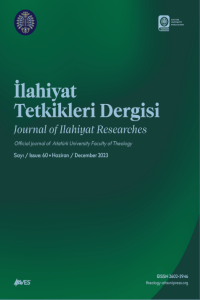Anayasalcılık Düşüncesi Bağlamında Medine Vesikası
Charter of Medina in the Context of Constitutionalism Doctrine
Author(s): Cem Ümit BeyoğluSubject(s): Constitutional Law, Human Rights and Humanitarian Law, Islam studies, Sharia Law
Published by: Atatürk Üniversitesi İlahiyat Fakültesi
Keywords: Consensus; Freedom of Belief; Islamic Law; The Charter of Medina; The Doctrine of Constitutionalism;
Summary/Abstract: Undoubtedly, in the modern world, the doctrine of Constitutionalism has two fundamental functions: limiting political power and guaranteeing human rights. On the other hand, it is possible to say that limiting the power will ultimately have positive effects on human rights. The Charter of Medina is one of the most important documents in Islamic history. It is a document accepted to ensure unity, peace, and justice among people of different religions, cultures, and races living in the city after Prophet of Islam Muhammad migrated to Medina. The Constitution regulates the functioning of the state and the distribution of powers. The Charter of Medina contains rules regarding the administrative, judicial, and military functioning of the city-state. In the Charter of Medina, the basic rights of the members of the city-state such as life, property, religion, and conscience were requested to be respected. In addition, people from different religions and cultures were allowed to live according to their own traditions. In the Charter of Medina, it is seen that the members of the city-state mutually transferred some of their rights to each other and to the Prophet. It is even claimed that the Charter of Medina is the first known written Constitution in history. In this study, the Constitutional nature of the Charter of Medina will be discussed in the context of Constitutional law.
Journal: İlahiyat Tetkikleri Dergisi
- Issue Year: 2023
- Issue No: 60
- Page Range: 121-133
- Page Count: 13
- Language: Turkish

